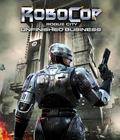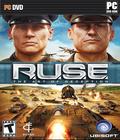Q: Who has the honor to speak with us? State your name, rank, and occupation!
I'm Alexis Le Dressay, and I'm the Creative Director for Eugen Systems.
Q: Can you tell us more about the deception skills you have in the game?
A: These deception skills are part of a brand new gameplay in strategy game. It is based on the ruse of war, on the fact that you can fool your foes in doing the right plan.
Q: Like superpowers?
A: I would not say that. These skills or ‘ruses’ are not allocated to special factions or units. We did not want to build up fastidious tech tree based around micromanagement. That’s why in R.U.S.E., the D-skills have to be used in a high strategic level, being applied & combined on large areas. They are not linked to the factions the player chose. The ruses of war are fully part of the arsenal a commander in chief has in hands when he needs to analyze how to win a war. Of course you can use your units, the terrains, your aptitudes in anticipating the opponent’s move. But when the battles are between refined strategists, the difference is usually made on surprise, on a brilliant trick that can fully break the course of the battle.
Our deep wish was to encourage the player to think Strategy rather than rely on units’ creation per minute.
At the highest level, strategy is a bet. Establish one’s domination, save a desperate situation, strike the lethal blow…These are the kind of situations where you need to try something and that’s precisely what the deception skills bring to the players. But like in poker, this kind of bet is not without risk. Bluffing can make you…or kill you ..
Q: Could you give us some concrete examples of Deception skills?
A: In real war as well in R.U.S.E., deception can be divided in three main categories.
The first one is the ruses allowing to hide information. In the game, you can for instance use a “building camouflage” skill to distract your enemy. Imagine your opponent focusing all his forces on an apparent headquarter whereas you have built then camouflaged another one and others manufactories behind his lines.
You have also the ruses that are about making believe things. Let’s speak about the decoy offensive. The principle is simple but powerful: simulate an attack on a front with wooden tanks to make your foe run his troops the wrong way…letting an open road to the real point you wanted to attack. You can by the way use this decoy offensive to earn time when you are in a bad mood; making your enemy’s attack in a bad place whereas you are building up the reinforcement.
And finally, there are the ruses about stealing information. It was one of the most used tools of the World War II because in a global conflict, having one move in advance is as strong as having heavy tanks! One of our Deception skills is “Spying Plan”. When you apply it on zone, you can unveil the exact nature of all troops occupying the area. As a result, you will create the proper units on your side to strike back efficiently.
Q: Where does your inspiration come from?
A: From passionate hours of reading such great books as the “art of war” or “on war”. But not only. When we had a look at the best theaters of war of the latest global conflict; it appeared that most of operations were made with the help of the deception. The most renown is of course the Fortitude Operation (a fake D-Day) but there are lots of other exciting stories where the ruse of war was a key factor of success. You have the example of the Barclay operation where the allies simulated the preparation of fake invasion through the Balkans whereas Sicily was the real target. They used bogus troop’s movement, fake radio noise and even hired Greek interpreters to make the story credible. The Axis bought it!! All this cleverness deployed by the human mind when the raw force is not enough to win… This is remarkable. This uncommon taste had to be in our game.
Q: How many D-skills are available in the game?
A: The list is not closed yet. We’re currently in a test phase, where we’re prototyping dozen of skills. We are evaluating their impact on the strategy & overall game design. Since those skills are the core of the deception gameplay, we want them perfectly balanced & efficient. We have a solid ground of around 10 skills right now though.
Another aspect we take into account is the combination between the D-skills to make the perfect & unexpected trap. For the time being, you can use and combine 5 skills in a game. You can even use 4 out of 5 on the same area or 5 times the same ruses if this is your style! It brings a new depth to the genre and I can tell you the confrontations in our studio are boilingJ
Q: Why do you compare the mechanic of your game to poker?
A: Because war can be seen as a gigantic poker game where the most important things is not the “cards” you have in hands but the ones your opponent think you have! Then like in poker, it’s your call to dig out the right information and act consequently.
Q: Anything else to add on the deception gameplay?
A: Well, the deception gameplay is not only supported by the deception skills. In R.U.S.E., the right use of units and environment are also favored to reward the cleverest strategies.
Hiding a recon unit in a forest behind the enemy line will be an open window on the troop’s composition of your enemy. A simple infantry battalion ambushed in a city will have the advantage on tanks. If tanks are predators of the plain, their limited field of vision in cities makes them become prey against infantries using sticky bombs &rocket launchers. As the Iriszoom engine allowed us to create gigantic environments, we wanted to use them as a part of the strategic gameplay.
Q: How does deception fit with your story mode?
A: Deception does not only bring a new way of playing strategy game but is a fresh angle to be used in our single campaign too. We could say we all know the end of the World War II story. However, no game approached the conflict under the angle of the deception. So our story mode is a story in “History” focused on the confrontation between strategists. The player will start under the skin of Joe Sheridan a young US major who will face charismatic masterminds during the most impressive battles of the World War 2. The ascent to power will be not easy in this era of spying, betrayal, unexpected twists. We hope players will enjoy the journey!Ubisoft's R.U.S.E., developed by Eugen Systems, is scheduled for release on PC, Xbox 360, and the PS3 for fiscal year 2009/2010.
More articles about R.U.S.E.











 R.U.S.E. is a strategy game in which the players use their brain as the ultimate weapon, fighting a war of perception, where the ability to deceive and mislead the enemy determines success. A first in a strategy game, R.U.S.E. reinvigorates the genre by using deception to give new-found depth to the game play.
R.U.S.E. is a strategy game in which the players use their brain as the ultimate weapon, fighting a war of perception, where the ability to deceive and mislead the enemy determines success. A first in a strategy game, R.U.S.E. reinvigorates the genre by using deception to give new-found depth to the game play.